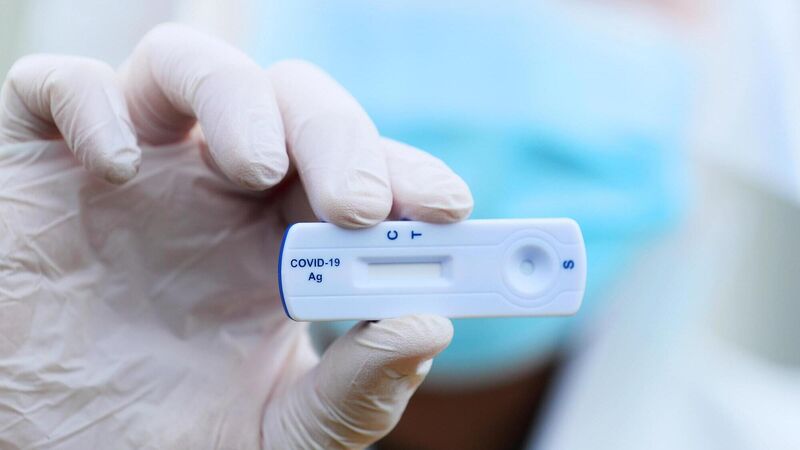Antigen testing to be deployed in addition to PCR as numbers rise

A lab technician holds a Healgen Covid-19 Rapid Antigen Test at RocDoc's testing facility in Gorey, Co. Wexford. Picture Brian Lawless
The HSE’s national lead for testing and tracing, Niamh O’Beirne has said that antigen testing will be deployed in addition to PCR testing as the number of people presenting for testing rises.
Ms O’Beirne told RTÉ radio’s show that antigen testing will be used for close contacts who will have to self-test four times, on days zero, five, seven and ten. Those people will also have to self isolate.










